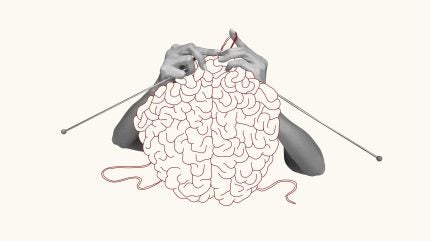
Two reports from the World Health Organisation (WHO) have revealed that more than one billion individuals worldwide live with mental health disorders like anxiety and depression.
The World Mental Health Today and Mental Health Atlas 2024 (MHA) reports, which were debuted on 2 September by the United Nations (UN) agency, have also revealed that mental health conditions are the second most common reason for long-term disability.

Discover B2B Marketing That Performs
Combine business intelligence and editorial excellence to reach engaged professionals across 36 leading media platforms.
Following its research, the WHO also voiced its concerns on the high global suicide rate of 727,000 in 2021, which the agency said highlights the “urgent need for stronger prevention strategies”.
Meanwhile, the agency has called the financial impact of mental health on the global economy “staggering”, stating that conditions under this umbrella cost $1tn worldwide each year. Upon these findings, the WHO has called for urgent and sustained investment, as well as multi-sectoral collaboration to tackle this global issue.
In the MHA report, the WHO advocates for worldwide improvements to primary health care quality and accessibility, which is defined as mental health care offered by governments, NGOs [non-governmental organisations] and private health facilities.
The agency also names pharmacological interventions as a core pillar of the primary healthcare framework for mental health, highlighting the necessity of such interventions.

US Tariffs are shifting - will you react or anticipate?
Don’t let policy changes catch you off guard. Stay proactive with real-time data and expert analysis.
By GlobalDataTackling treatment-resistant depression
According to GlobalData, there are 230 drugs approved in the US for the treatment of major depressive disorder (MDD)/ Despite this, there is a distinct lack of therapeutic options for patients with treatment-resistant iterations of the disease.
Currently, five medications have obtained approval from the US Food and Drug Administration (FDA) for treatment-resistant depression (TRD). This includes Johnson & Johnson’s Spravato (esketamine), which was the first and only monotherapy to secure FDA approval in this indication.
However, treatment with Spravato must be conducted in a clinical setting by a healthcare provider because of the drug’s associated dissociation risks, as well as its abuse potential.
Meanwhile, combination therapies such as Abilify (aripiprazole) plus Rexulti (brexpiprazole), and Seroquel (quetiapine) plus Zyprexa (olanzapine) can be prescribed to patients for at-home oral use as an adjunct treatment to other antidepressants.
Though the TRD space has remained relatively stagnant until Spravato’s label expansion into the indication early this year, 11 therapies are making their way through the clinical pipeline, six of which are psychedelics.
This includes Compass Pathways’ synthetic psilocybin, which met its primary endpoint in a Phase III clinical trial in TRD back in June 2025. The company is now running a second late-stage trial on the drug, which will read out in H2 2026. If approved, the drug would likely beat Filament Health’s psilocybin molecule to market, which is currently being explored in Phase II trials.
Beckley Psytech and atai Life Sciences are also looking to get a slice of the TRD pie with their BPL-003 (intranasal mebufotenin benzoate), which is based on the tryptamine psychedelic compound, mebufotenin. It recently met its primary endpoint during a Phase IIb study in TRD.
Currently, there are no FDA-approved psychedelic therapies, with experts noting that slow progress in this field is likely due to the difficulty of placebo control due to functional unblinding.




